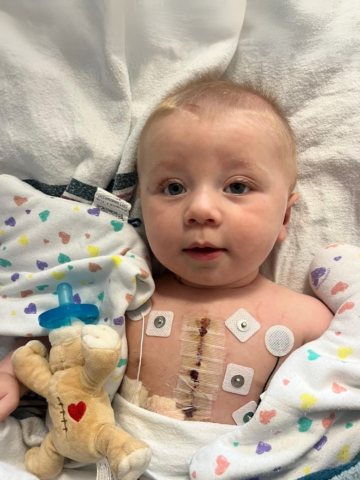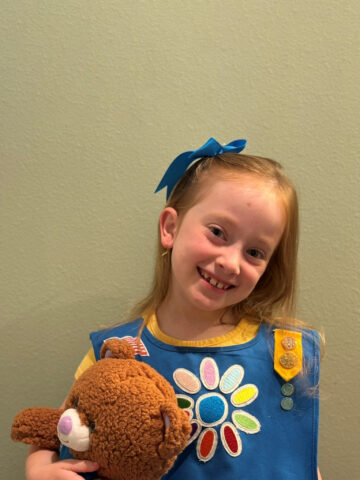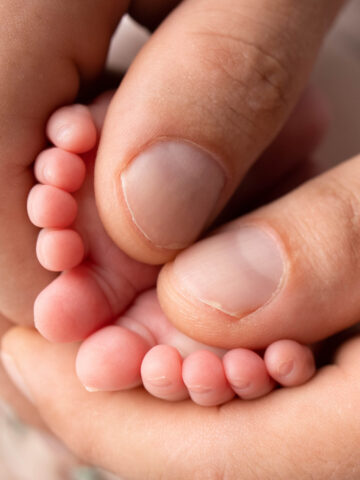By April Bell, registered nurse at CHOC and mother of CHOC NICU graduates Mikayla and Emma
I’ve been a nurse at CHOC for 15 years. I started working here as a nurse aide while I was in nursing school and after graduation, I entered the RN Residency program as a nurse in the medical/surgical unit. I learned a lot about time management and honed my nursing skills starting IVs, inserting feeding tubes and catheters, and giving medications. I enjoyed the time I spent on that unit, but after about five years I was looking for another challenge. The new pediatric intensive care unit (PICU) and new cardiovascular intensive care unit (CVICU) had just opened on the sixth floor, and I was considering a nurse fellowship in the PICU. However, before I could start that process, I found out I was pregnant with twins.
Not only twins, but very high-risk twins called monoamniotic-monochorionic, or “MoMo.” These types of twins share one amniotic sac and the risk is that their umbilical cords could become tangled and/or compressed. These rare twins have a 50 percent survival rate. I knew they would most likely be delivered early; my OB-GYN did not want to deliver past 32 weeks gestation. We ended up making it only to 28 weeks, as their cords were knotted together twice and wrapped around my daughter, Mikayla’s neck, twice.
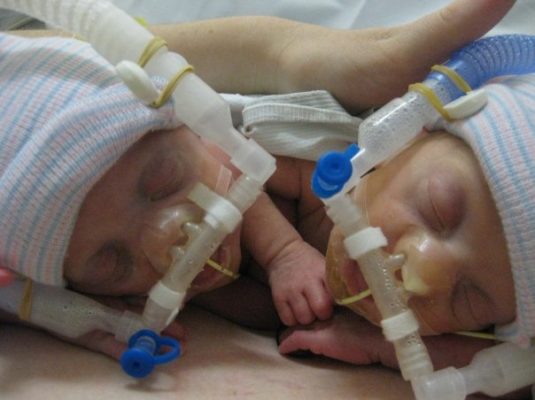
Mikayla weighed only one pound, 13 ounces when she was born. Emma was two pounds, six ounces.
From the moment the twins were delivered, the neonatal intensive care unit (NICU) team that was in my delivery room made a huge impression on me including the neonatologist who was present at the delivery, Dr. Daryoush Bassiri. I met Dr. Bassiri the week before my twins were born, when I was admitted to St. Joseph Hospital, next door to CHOC. He told me what I could expect if they were born at 27, 28, 29, 30 weeks, etc. The nurses who were at the delivery were also very supportive and kept me informed about what the plan was for the babies.
Both of my daughters need to be intubated right after delivery, but the nurses made sure I could see them briefly before they left for the NICU. The next few days were quite a roller-coaster, starting when Emma became very sick. Because her lungs were not fully developed, she was placed on a ventilator to help her breathe. The pressure of the ventilator caused her lungs to collapse. She needed two chest tubes to resolve her collapsed lungs. Her lungs also developed pulmonary hypertension (a type of high blood pressure) and pulmonary interstitial emphysema (where air collects outside the normal air space). All of Emma’s lung problems are common conditions in premature babies, but it was still a very scary time. I wasn’t sure if she was going to make it. She was given nitric oxide, a medication to treat breathing problems in premature babies, and finally she started to slowly improve. She took a turn for the better, only to face another setback: she was diagnosed with a heart defect called patent ductus arteriosus (PDA). In some premature babies, the opening between the aorta and the pulmonary artery does not close, as it does in most children.
Her sister, Mikayla, although smaller, was doing much better. She only needed to be intubated for about a day and a half and was on bubble CPAP (continuous positive airway pressure), non-invasive ventilation support for newborns. Mikayla had the same PDA diagnosis as her sister, and received medication to close her PDA. Emma could not get the medication because the doctors were worried about her kidneys, after how sick she had been. So the doctors decided that a surgical repair know as PDA ligation was the way to go. Once again, we were worried about her. She had an excellent surgeon, Dr. Brian Palafox, who explained everything to me and Emma’s dad. Although he told us what possible complications could come from the surgery, everything went very smoothly.
The next few months were filled with more ups and downs, but nothing quite as scary as the first few days. After they mastered breathing on their own, working on feedings was another struggle. They had an amazing team of developmental therapists, lactation consultants and of course, their bedside nurses. I learned so much from everyone that took care of my twins. As a medical/surgical nurse, I had floated to the NICU before, but I had no idea what each preemie went through.
Emma spent 75 days and Mikayla spent 77 days in the NICU. Towards the end of my twins’ NICU stay, I realized that the NICU was where I wanted to be as a nurse. I spoke with one of the NICU managers and told her I was interested in transferring to the NICU. I was surprised to learn that they were, in fact, just starting a nurse fellowship program. When I started my NICU fellowship, I went with the RN Residents to a special NICU consortium taught by the NICU educator at the University of California Irvine. We were there with nurses from NICUs all over Southern California. I finished the NICU fellowship when my daughters were just about 1 year old. I feel like the classes really helped me understand so much more about the development of the neonate and how to care for them.
During the last seven years in the NICU, I have taken care of a variety of babies, from small micro-preemies to babies who have undergone surgery, and babies with heart defects. I helped open the CHOC NICU at St. Joseph Hospital. I have also had the privilege to care for babies in our Small Baby Unit.
After having two micro preemies of my own, I feel I can really relate to a lot of the parents. I have been on the other side of it and know how frustrating and worrisome it can feel.
I enjoy sharing my story with my patient’s families. I have seen firsthand how strong and resilient these babies can be.
I was working the night that we opened the new, all private room NICU. At the end of my night shift, I helped transfer my patients upstairs and get them settled into their new rooms. It was amazing to see how smoothly everything went that morning. It was also exciting to see the babies in their own rooms. My twins were always with other babies in a pod, and it would have been so nice to have a private room. I would’ve loved to have been able to stay overnight and sleep right next to my babies when they were in the NICU, like the parents can do now in our new NICU. It was hard to leave the NICU when my daughters were there. The noise in the pods could get loud at times, and occasionally a baby would be sick and need sterile procedures which meant all non-clinical staff had to leave the unit. The patients did not always have privacy. I am excited for the patients and families that will benefit from our new private room NICU.
Looking at my daughters today, you would never know what they have been through. They are almost 8 years old and they are just about to start second grade. They’re very smart and are excelling in school. They started reading in pre-kindergarten and have been reading at an advanced level ever since; they almost read better than their older brother, Joey. The only long-term effect from being born so premature and facing a mountain of health challenges has been with Emma, who has a raspy voice from left vocal cord paralysis, a common complication from the surgery. I am so grateful to have two healthy girls.
I am also very grateful for the way the CHOC NICU cared for my own children, and I am extremely proud to be part of it as a caregiver.
Get more expert health advice delivered to your inbox monthly by subscribing to the KidsHealth newsletter here.
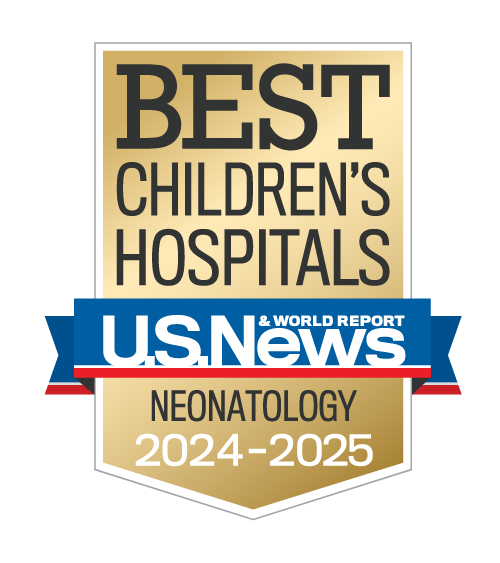
Learn more about CHOC’s Neonatology Services
CHOC Hospital was named one of the nation’s best children’s hospitals by U.S. News & World Report in its 2024-25 Best Children’s Hospitals rankings and ranked in the neonatology specialty.

